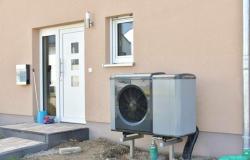Domestic steelmakers are beginning to feel the sting of the surplus of steel on world markets caused by increased exports from China. The Asian giant is churning out steel to the world because steel mills there do not have sales on the domestic market due to the weakened Chinese economy.
The first Czech company has already limited production due to this situation. Moreover, the problem with Chinese steel on the world market arose at a time when the large Liberty Ostrava smelters are fighting for salvation.
“The Chinese economy has problems and the smelters there are looking for outlets abroad. Steel from China is displacing domestic production in the target countries, so local producers are looking for other markets for their steel, including Europe,” commented Daniel Urban, Chairman of the Board of Directors of the Steel Union.
China accounts for roughly 55 percent of world steel production. In the first two months of this year, the country exported 15.9 million tons of steel, 30 percent more year-on-year. The last time Chinese exports were this high was in 2016, according to data from the Financial Times. Just for comparison – for the whole of last year, 3.4 million tons of steel were produced in the Czech Republic.
“The share of imports in consumption in the EU is at historical highs, which of course harms European producers who, unlike Chinese and many other competitors, have to face a number of negative factors, including the most expensive energy in the world and burdensome regulation of all aspects of their business,” added the head of the Steel Union.
Due to the bad situation on the world market, the Go Steel company from Frýdek-Místek significantly reduced production. It produces steel sheets and strips for electrical engineering. Since January, the company’s production has been cut in half, and most of the 430 employees are at home.
“European companies face overwhelming competition from Asian suppliers, especially from China. In the same way, our company faces competition from China, which sells at dumped prices, on the European and other world markets where it supplies transformer steel,” said Go Steel’s executive director Ivo Chmelík for Novinky.cz.
At the same time, even without Asian competition, domestic steelmakers had enough problems.
“On the market, we are currently dealing with a drop in demand for steel products in connection with the drop in economic performance and stagnation in the construction industry and other sectors,” Petr Popelář, chairman of the board of the Moravia Steel group, which also includes Třinecké železárny, told SZ Byznys.
“Long-term high energy prices and insufficient protection of the European market, which is exposed to enormous pressure from imports especially from Asian territories, have a fundamental influence on our competitiveness. It is an unequal battle against subsidized production and low raw material prices. We really see imports from third world countries as a problem for European competitiveness,” added the head of Moravia Steel.
According to steel workers, the protection of European production is also crucial due to the industry’s transition to more environmentally friendly technologies.
“The European steel industry has been stagnant in the global volume comparison for a long time, even though it is one of the essential sectors needed for the development of the entire EU economy and for the Green Deal. Without steel products, there are no ecological components. If a successful transformation is to take place, Europe will need to start protecting its market and ensure a level playing field for European production. Steel is the backbone of most product chains, including emission-free technologies,” said Roman Heide, CEO of Třinecké železáren.
Financial pressure
The situation with Chinese competition is also unpleasant for Liberty Ostrava. Production in leading domestic smelters has been at a standstill since December, and the company was in danger of falling into insolvency. The company identified the unfavorable situation on international markets as one of the causes of its troubles. Liberty Ostrava is now in moratorium, i.e. in protection from creditors.
“During 2023, conditions in Europe for the entire steel industry have deteriorated significantly. The main reasons include the war in Ukraine, the cooling of the Chinese economy and the substantial increase in overall energy costs. These conditions have put all steel producers in a very difficult financial situation and forced the major companies in the industry to adopt structural changes,” Liberty wrote in the restructuring plan it recently submitted to creditors for approval.

“We regularly draw our European partners’ attention to the area of steel imports into the EU from third countries. This is an issue that is impacting many European steel companies and is manifesting itself through a drop in prices and customer demand. We will continue to adapt our production to the market situation in order to be able to produce only those products that are profitable,” said Liberty spokesperson Ivo Štěrba when asked how Chinese competition can affect Liberty’s efforts to return to the market.
According to the Financial Times, the European Union already considered last fall whether to launch an investigation into Chinese steel producers due to suspicions of using Chinese state aid. The EU has previously imposed anti-dumping duties on imports of certain steel products from China.
In addition, the so-called carbon duty, also known by the English abbreviation CBAM (Carbon Border Adjustment Mechanism), is to operate in full force from 2026. The purpose of the new fees for the import of energy-intensive commodities, including steel and iron, is to offset the disadvantage of European producers, who will have to meet stricter environmental conditions than producers from non-EU countries, including China.

“The introduction of an effective CBAM system and border protection is absolutely crucial for Europe. It is necessary for Europe not to be an exporter of scrap metal and an importer of steel, but to protect its own high-quality production of steel products,” said Moravia Steel Popelář, head of the board of directors.
According to the statistics of the Steel Union, 3.4 million tons of steel were produced in the Czech Republic last year. This was the lowest value in the history of the country, and this year does not give much chance for a big improvement either.









